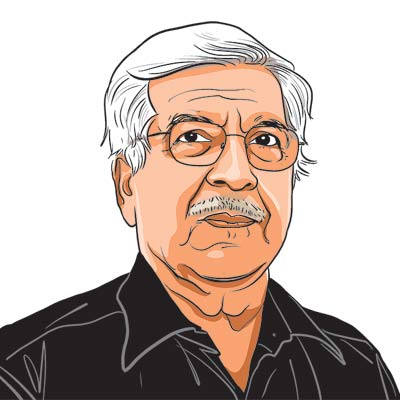Opinion Chinese Whispers
Admiral Mehta's parting cannon ball on India's security appropriately eclipsed the episode on a Chinese scholar talking of dismembering India.
Admiral Mehta’s parting cannon ball on India’s security appropriately eclipsed the episode on a Chinese scholar talking of dismembering India. That story was of interest not because it had any worries for India,unlike the Admiral’s wise words,but as an insight into Chinese scholarship in what I would describe as an increasingly liberalised regime of ideas. At least Chinese scholars have complete freedom in critically commenting on countries like India,the US and Russia. Freedom to comment on China is also expanding.
The fear of internal revolt is real in China. I was the minister accompanying the Chinese President when he visited India and the Clash of Civilisations really bothered him. An electrical engineer by training,he jokingly told the press at the end of his visit that “your minister” is an econometrician and I discussed fuzzy logic with him. Also we both agreed that the clash of civilisations is not relevant to large countries like China and India. The problem is more acute for them.
An interesting experiment biotechnologists carry out is to examine if,genetically,populations are different. These are expensive and so sample sizes are limited. The Indian experiment done by our ranking National Institute at Pune had a sample of over 2,000 which is large for such studies,but I suspect had a small Adivasi cohort. It turns out that the Indian population does not show any genetic differences in a statistically significant sense. As the then Minister of Science and Technology I read the report carefully since in my days,the Science Minister also looked after BT. Life was never the same for me again. Earlier,when I would take a plane and go south in the subconscious mind,there was the myth of the so-called Aryan North and the Dravidian South. Now when I go I see,hey,he looks like my cousin Pramod or she is like Pushpa Chachi.
The Chinese did a similar study reported last year with a sample of around 800 and found a significant genetic difference between the dominant Han and non Han populations.
The events in Tibet and in the Muslim provinces would any day worry a responsible leadership. But at the scholarship level it is more convenient to turn the problem on its head. The thesis could be in India,and so China would be the antithesis and one day there would be a solution.
In terms of intellectual freedom China is more interesting than we are,with our fanatics going wild every time a so-called provocative book or film is made. Also we don’t have a Nehru Chacha any more to write anonymous editorials on the danger of placing too many powers in his hands. I was the Deputy Leader of the first big official delegation which went to China after the rapprochement engineered by P N Haksar in the early ’80s.
It was a Social Science delegation led by G Parthasarathy who those days was Chairman,ICSSR,but also Chairman of the Foreign Policy Advisory Committee. When we reached Beijing in 1982 we were told that Vice-Chairman Deng would meet us and that put the delegation on a different footing. He was to give us 10 minutes but spent two hours with us in the famous Hall of the People. He laid out the path that China was to follow in the next two decades and the need for the two countries to cooperate,and that is what they did.
The social science part was painful. Mah Jong was just made the Chief of the Chinese Social Science Council and was a very diffident person. He had been exiled to a commune and the pain was there. He wasn’t going to let the exuberant Indians make him slip. The party line was there and a few months later he made the cover page of Time magazine.
Twenty-two years later I was to go again leading another Indian delegation. The world had changed. It’s only if you go as a national that you see the inner workings that are not unfolded when you go in high-level international settings. Chinese social science had arrived. The men we met were critical in the finest scholarly sense of the term. Jiang Jin Liu’s critiques of official Chinese claims based on the Chinese Censuses were as good,if not better,than our scholarship. I made a song and dance on academic freedom in China. But later,according to the Herald Tribune he was jailed for 20 years on unsubstantiated charges of espionage. He was a widely travelled man and had also been to Amul. Perhaps he should have kept himself to criticising Indian rural development policies.


